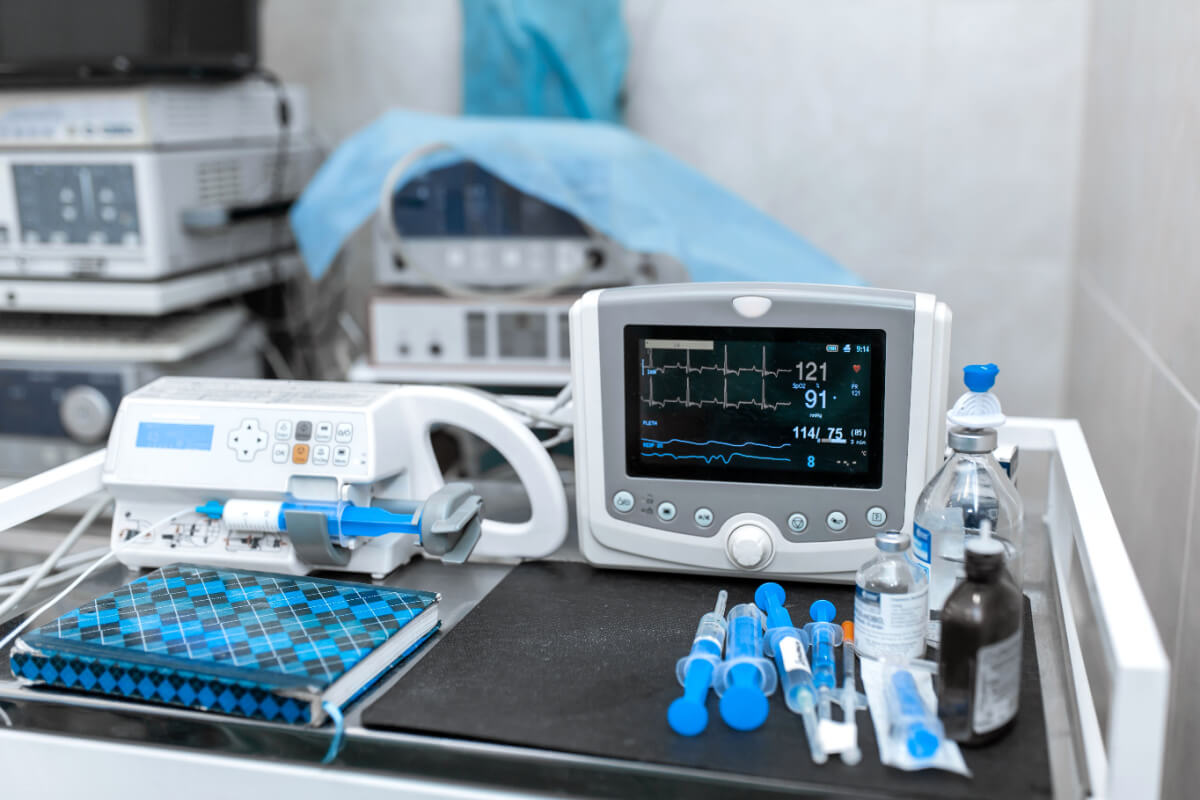
Partner at AKD Lawyers
Practice Areas: Personal Injury

Medical devices play a crucial role in modern healthcare, helping millions manage chronic conditions, recover from surgeries, and lead healthier lives. However, when these devices fail or get recalled, they can cause significant harm, both physically and financially. Understanding the recall process and knowing your legal rights are essential steps in protecting yourself or a loved one.
In this comprehensive guide, we’ll explore the reasons behind medical device recalls, the risks associated with defective devices, and the legal actions you can take if you’ve been affected. This information will help you navigate the complexities of medical device recalls with confidence and take the proper steps to safeguard your health and rights.
Understanding Medical Device Recalls and Failures
A medical device recall occurs when a manufacturer or the U.S. Food and Drug Administration (FDA) identifies a defect that could harm patients. Contrary to popular belief, a recall does not always mean that a product must be removed from the market. It could involve modifications, repairs, or updated instructions to ensure patient safety.
The primary reasons for medical device recalls include design flaws, manufacturing errors, labeling mistakes, and compatibility issues. For instance, a pacemaker that fails to regulate heartbeats correctly or a hip implant that wears out prematurely can pose serious health risks. When such defects are discovered, swift action is crucial to prevent further harm.
The impact of defective medical devices can be severe. Patients may face worsening health conditions, require additional surgeries, or experience new medical complications. Financially, the cost of corrective treatments, lost wages, and ongoing medical care can be overwhelming.
“According to the FDA, medical device recalls increased by 35% in the past five years, highlighting growing concerns over safety and manufacturing defects.”
The rise in recalls emphasizes the importance of regulatory oversight and the need for patients to stay informed about the devices they rely on. By understanding the recall process and your rights, you can take proactive steps to protect your health and seek justice if harmed.

Types and Classifications of Medical Device Recalls
Medical device recalls are classified into three categories based on the risk they pose to patients. Understanding these classifications can help you assess the severity of a recall and take appropriate action.
- Class I Recalls: These are the most critical recalls involving devices that can cause severe injury or death. For example, a defective heart valve that could lead to cardiac arrest or a malfunctioning ventilator used in critical care settings would fall under this category. Immediate action is usually required, including device removal or replacement.
- Class II Recalls: These involve devices that may cause temporary or reversible health problems but are not life-threatening. For instance, insulin pumps delivering incorrect dosages or surgical tools prone to breaking during procedures may be recalled under this category. While not as urgent as Class I, these recalls still require prompt attention.
- Class III Recalls: These are the least severe and typically involve issues that are unlikely to cause harm, such as labeling errors or minor software glitches. Although the risks are lower, addressing these recalls is still essential to prevent potential complications.
| Recall Class | Risk Level | Examples |
| Class I | High risk – can cause death or serious injury | Pacemaker failure, faulty heart valves |
| Class II | Moderate risk – may cause temporary health problems | Defective hip implants, insulin pumps |
| Class III | Low risk – unlikely to cause health issues | Labeling errors, minor software issues |
Understanding the classification helps you respond appropriately, whether that means discontinuing use immediately or following specific instructions from the manufacturer or healthcare provider.
Common Faulty Medical Devices and Their Risks
Defective medical devices can vary widely, from implants and surgical tools to diagnostic equipment. Recognizing which devices are commonly recalled can help you take precautions and respond swiftly if you own one of these products.
- Hip Implants: These are among the most frequently recalled devices. Defects such as loosening or metal-on-metal wear can cause pain, inflammation, and impaired mobility. In many cases, patients require revision surgeries to replace or repair the faulty implant, leading to prolonged recovery times and additional medical expenses.
- Pacemakers: A pacemaker that fails to regulate heart rhythms can cause fainting, fatigue, or even sudden cardiac arrest. Recalls for these devices often involve battery malfunctions or software errors that disrupt their performance. Immediate medical intervention is usually necessary to prevent life-threatening complications.
- Surgical Mesh: Used in hernia and pelvic surgeries, defective surgical mesh can cause severe pain, infections, and organ perforation. The removal process is complex and often requires multiple surgeries, leaving patients with lasting physical and emotional trauma.
- Blood Glucose Monitors: Accurate readings are vital for people with diabetes to maintain their insulin levels. Defective monitors can provide false readings, leading to improper insulin doses that cause dangerous blood sugar fluctuations.
- Breast Implants: Defective implants can rupture or leak, causing pain, infections, and, in some cases, autoimmune responses. Patients may require additional surgeries to remove or replace the implants.
“Patients have the right to seek compensation if a defective medical device causes harm. Legal action can cover medical expenses, lost income, and emotional distress.”
Your Legal Rights If You Are Affected by a Defective Medical Device
If a recalled or defective medical device has caused you harm, you have legal rights under product liability law. This area of law allows patients to seek compensation from manufacturers, suppliers, or healthcare providers responsible for the defect.
Legal claims can be filed under three main theories:
- Manufacturing Defects: When errors during production make a device unsafe.
- Design Flaws: When the product’s design is inherently dangerous.
- Failure to Warn: When inadequate labeling or instructions lead to misuse or risks.
Compensation can cover:
- Medical expenses for corrective procedures and ongoing care.
- Lost wages if the injury prevents you from working.
- Pain and suffering due to physical and emotional distress.
Filing a lawsuit requires detailed documentation, including medical records, FDA recall notices and expert opinions. An experienced attorney can help gather evidence, file the necessary claims, and negotiate settlements.

Frequently Asked Questions
What should I do if my medical device is recalled?
Contact your healthcare provider immediately for guidance. Check the FDA’s recall notice for specific instructions, such as discontinuing use or seeking repairs. Preserve all records related to the device.
Can I file a lawsuit for a defective medical device?
Yes, if the device caused harm or required additional medical procedures. A product liability lawsuit can help you recover damages for medical bills, lost income, and emotional distress.
How do I check if my medical device has been recalled?
Visit the FDA’s recall database or the manufacturer’s website. You can also sign up for recall alerts to stay informed about potential risks.
Who is responsible for a faulty medical device injury?
Typically, the manufacturer is liable. However, distributors, hospitals, or healthcare providers could also be held responsible if they failed to provide adequate warnings or maintenance.
What compensation can I receive if a defective medical device injures me?
You may be eligible for compensation covering medical expenses, lost wages, pain and suffering, and costs for corrective surgeries or therapies.
Conclusion: Protecting Your Rights
Medical device recalls are a growing concern, with significant implications for patient safety. Understanding the recall process and your legal rights can help you take action if you’re affected. Seeking immediate medical attention and consulting with an experienced attorney are crucial first steps.
The attorneys at Alvendia, Kelly & Demarest have extensive experience handling defective medical device cases. They can guide you through the legal process, help you gather evidence, and fight to secure the compensation you deserve.
To learn more about your options, contact Alvendia, Kelly & Demarest for a free consultation today.
Categories

In 2003, after being dissatisfied with the quality of legal care for victims of car accidents, Roderick ‘Rico’ Alvendia sought to establish a new firm focused on providing high-quality legal services to aid injured victims and their families. J. Bart Kelly, sharing Rico’s passion for upholding justice, joined the firm later that year, and established a partnership.






